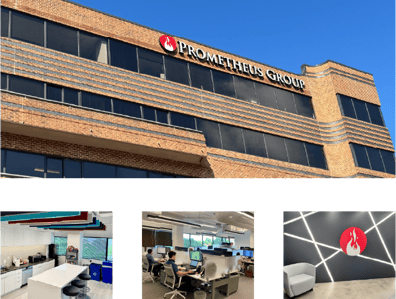The industrial maintenance field has recently entered a new phase of growth, characterized by technological advancements, which come with increased needs for a highly skilled workforce. Currently, there is a noticeable talent gap in the digital technologies that are used for the development and deployment of industrial maintenance applications.
In order to alleviate this talent shortage, enterprises and governments need to understand the major trends that are shaping the industrial MRO job market. With this knowledge, they can then take appropriate measures at the corporate and public policy levels.
Industrial Maintenance Job Market Trends
The industrial maintenance labor market is driven by the following trends:
Requirements for Digital Skills
The Industry 4.0 era requires digitally-literate maintenance workers. This leads to the need for a unique profile for future employees in the MRO niche, where current field knowledge is not commonly combined with advanced digital expertise.
The direct result is that there are few maintenance workers with adequate science, technology, engineering and math (STEM) education. This has been an industry challenge for decades. This problem only seems to have grown over time, as STEM literacy needs to be accompanied with Industry 4.0 digital skills.
Ageing Workforce
Industrial maintenance workers are ageing due to rising longevity combined with later retirement age thresholds. Enterprises must, therefore, be prepared to accommodate a greater number of older workers, who must be appropriately trained in order to remain productive in the digital era.
At the same time, it’s important to tap into the experience of older workers as much as possible, in order to facilitate knowledge transfer to the younger generations of maintenance workers.
Negative Perception of the Market
There is generally a negative perception about industrial jobs in plants, shop floors and oil refineries. This viewpoint has been developed during the years of decline in industrial professions. For example, the manufacturing workforce in the U.S has declined as a percentage of total employed, from 30% in 1960 to less than 10% now. All this discourages skilled younger workers from considering careers in MRO.
Limited Interest and Publicity
Industrial maintenance jobs do not receive a lot of publicity and are not promoted as the “jobs of the future” in the media. This reinforces the pre-existing negative perception, while limiting awareness about sizeable industrial maintenance opportunities in the Industry 4.0 era.
These trends suggest that it is not easy to recruit younger workers who could fill the existing talent gap in digital technologies for industrial maintenance. To address this, enterprises should be more creative in their HR and recruitment processes.
Preparing Enterprises For The New MRO Workforce Requirements
In the above-illustrated landscape, enterprises should be prepared to address the new workforce requirements through proactive employee recruitment and retention. The most prominent of these measures include:
Establishing Well-defined Recruitment Processes
Industrial organizations should redefine what talent looks like, taking into account the new skills needed for implementing industrial maintenance tasks in the digital era.
These new skills should be combined with traditional ones relating to mechanics, problem solving and operations research. Moreover, enterprises need to revise their recruitment processes in order to be able to attract new talent.
Training and Lifelong Learning
Enterprises should establish training and lifelong learning programs. This will support current employees who want to expand their knowledge in-line with current trends and methodologies. Special emphasis should be given to training on digital technologies (e.g., IoT, BigData, AI) and their use in maintenance applications.
Academic Partnerships
The development of academic partnerships with institutions that educate individuals in maintenance-related subjects can help organizations recruit maintenance workers with the proper skillsets.
As part of such partnerships, industrial organizations and academic institutions could jointly organize career and recruitment days to identify promising candidates for specific positions.
Likewise, the partnerships should provide industrial organizations with opportunities to review existing curricula and suggest targeted additions associated with industrial maintenance subjects. Overall, academic partnerships ensure a proper linking of academic knowledge with industrial practice.
Take Advantage of Professional Networks and Social Media
A great deal of modern recruitment and HR processes take place within professional networking platforms such as LinkedIn.
Enterprises should, therefore, take advantage of these networks in order to identify and connect to workers with the proper skillsets. This includes establishing a corporate presence, posting proper job advertisements, searching for proper candidates and more.
Focus on Employee Satisfaction
It’s important to undertake measures that increase employee satisfaction, including establishing a positive environment and an engaging workplace, as well as providing training and career development opportunities.
Employees should be provided with growth opportunities, including opportunities for obtaining knowledge and skills to help excel in the next-gen maintenance activities and jobs.
Moreover, enterprises should focus on employee recognition and rewards, the establishment of mentoring programs and the provision of support for activities outside work. These activities keep maintenance workers engaged, particularly when they are combined with tasks that give them a sense of purpose and success.
New MRO Employee Profiles
In revising their recruitment processes, enterprises should also consider that Industry 4.0 maintenance requires entirely new profiles and job descriptions.
A recent report by Manpower identified some of the digital roles and skills that will be soon associated with “smart” manufacturing, such as manufacturing driven by digital technologies and cyber-physical systems (CPS). Similar roles can be specified for other types of industrial enterprises and their environments such as energy plants and oil refineries. These roles include:
- Chief Digital Officer (CDO), who will have the leading role in digital transformation activities, including the transformation of maintenance processes.
- Digital Engineer, who focuses on the engineering of digital systems and CPS systems in the plant based on digital technologies such as BigData. Such engineers will also have a key role in building maintenance systems.
- Virtual Reality (VR)/Augmented Reality (AR) System Specialist, who will emphasize on the design and deployment of VR and AR technologies for field service engineering (e.g., including for example the deployment of wearables VR/AR systems).
- Worker Experience Designer, who focuses on creating plants that provide ergonomic, pleasant and generally exceptional experiences for workers.
- Digital Maintenance Engineer, who specializes in maintenance processes that leverage digital technologies.
These roles provide new job opportunities, which were not available a few years ago. Sooner or later, industrial organizations will be introducing these roles in their corporate structures and in their recruitment processes.
Government Policies to Proactively Support MRO Workforce Development
Industrial automation and maintenance activities are particularly important for the competitiveness of industrial organizations, as well as for the wider economic growth. Hence, governments should also take measures to alleviate the talent gap in industrial maintenance and to boost enterprises’ ability to recruit proper workers. Relevant policies should focus on:
Encouraging Industrial Engineering Education and Training
MRO professions are not usually considered “trendy”, so college students resist pursuing a career in the industry. However, this career path can be very challenging, innovative and a gateway to job security. To combat negative perceptions and encourage more students to explore industrial education, governments, and schools need to raise awareness about maintenance professions and their advantages in the years to come.
Updating Industrial Engineering Curricula
Course curricula in industrial engineering should become aligned to latest digital trends such as BigData, IoT and AI. In this way, graduates will be better prepared to apply for an industrial profession in the Industry 4.0 era. In this direction, schools could also offer industry certifications, which provide tangible proof of their skills.
Boosting an Intergenerational Culture
MRO careers of both young and older workers could benefit from not only exchanging knowledge from their respective generations, but also from their active collaboration. Governments should, therefore, try to boost an intergenerational culture in the job market, by providing incentives for knowledge transfer and collaboration.
It’s critical to revisit corporate processes for human resources and recruitment, while identifying the MRO workforce skills needed in the next five years.
Looking for an enterprise asset management solution that works with your business rules and puts the right processes in place to mitigate knowledge loss in an aging workforce? Request a demo of the Prometheus platform.



